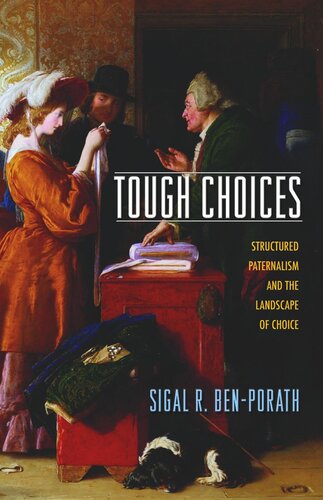

Most ebook files are in PDF format, so you can easily read them using various software such as Foxit Reader or directly on the Google Chrome browser.
Some ebook files are released by publishers in other formats such as .awz, .mobi, .epub, .fb2, etc. You may need to install specific software to read these formats on mobile/PC, such as Calibre.
Please read the tutorial at this link: https://ebookbell.com/faq
We offer FREE conversion to the popular formats you request; however, this may take some time. Therefore, right after payment, please email us, and we will try to provide the service as quickly as possible.
For some exceptional file formats or broken links (if any), please refrain from opening any disputes. Instead, email us first, and we will try to assist within a maximum of 6 hours.
EbookBell Team

4.7
26 reviewsTo what extent should government be permitted to intervene in personal choices? In grappling with this question, liberal theory seeks to balance individual liberty with the advancement of collective goals such as equality. Too often, however, society's obligation to provide meaningful opportunities is overshadowed by its commitment to personal freedom. Tough Choices charts a middle course between freedom-oriented anti-interventionism and equality-oriented social welfare, presenting a way to structure choices that equalize opportunities while protecting the freedom of individuals to choose among them.
Drawing on insights from behavioral economics, psychology, and educational theory, Sigal Ben-Porath makes the case for structured paternalism, which is based on the understanding that state intervention is often inevitable, and that therefore theorists and policymakers must focus on the extent to which it can productively be applied, as well as on the forms it should take in different social domains. Ben-Porath explores how structured paternalism can play a role in providing equal opportunities for individual choice in an array of personal and social contexts, including the intimate lives of adults, parent-child relationships, school choice, and intercultural relations.
Tough Choices demonstrates how structured paternalism can inform more egalitarian social policies, ones that acknowledge personal, social, and cultural differences as well as the challenges all individuals may face when they make a choice.